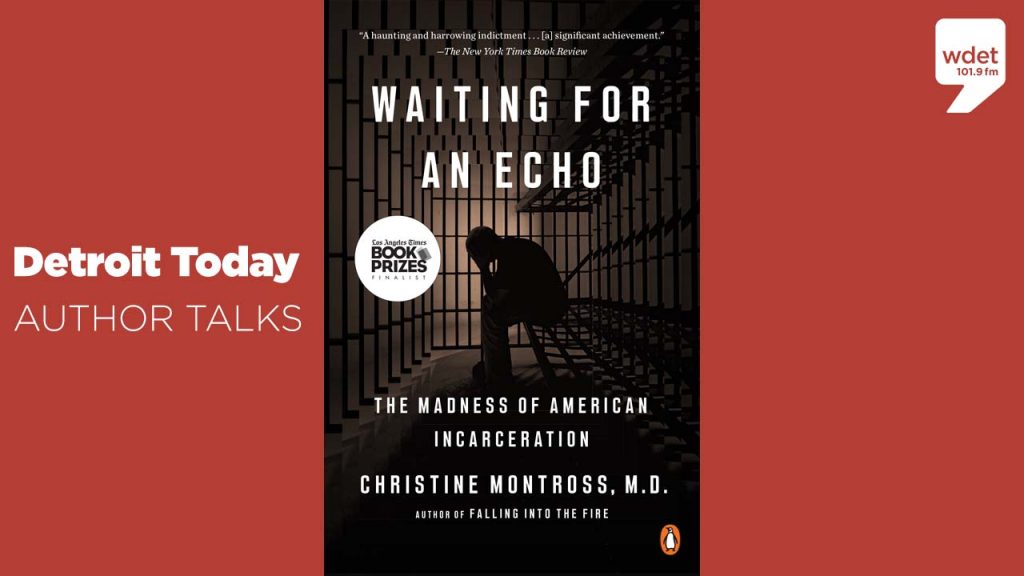Psychiatry Professor Explores Intersection of Mental Illness and Mass Incarceration
Dr. Christine Montross says trained clinicians should be the responders to people having a psychiatric emergency, not police.

The U.S. has the highest incarceration rate in the world, with around 2 million people locked away any given year. There are 10 times more people with serious mental illness in our jails and prisons than in our state psychiatric hospitals. Prisons take a mental toll on parents, children, people suffering from addiction, correctional officers and prison physicians.
“We have really designed our jails and prisons to focus not on safety and justice, which we say our goals are, but rather on suffering and vengeance. We want people, as a society, to really suffer when they’re in prison.” –Dr. Christine Montross
Dr. Christine Montross explores this intersection of prison and mental health, and last summer she released the book, “Waiting for An Echo: The Madness of American Incarceration.” Despite the calls for criminal justice reform in the summer of 2020, reimagining and implementing changes to public safety and incarceration are still so far away.
Listen: Dr. Christine Montross talks about mental health and prisoners.
Guest
Dr. Christine Montross is an author, poet and associate professor of psychiatry and human behavior at the Warren Alpert Medical School of Brown University. Her latest book is “Waiting For An Echo: The Madness of American Incarceration” and is now out in paperback.
Montross says people should want those who emerge from prison to be stronger and better than they were before serving time, but our prison system is not designed for that. “We have really designed our jails and prisons to focus not on safety and justice, which we say our goals are, but rather on suffering and vengeance. We want people, as a society, to really suffer when they’re in prison,” she says. This suffering is dehumanizing and degrading, and Montross believes if we as a society truly want prisoners to emerge as better people, we need to rethink our system of punishment.
The first responders to somebody having a psychiatric emergency are police, and according to Montross, this is a problem. She says the U.S. should consider changing these first responders to trained clinicians who can intervene in therapeutic ways. As for other ways to reform prisons, Montross points to the way Sweden and Norway rehabilitate the people in their prisons. “They have taken a completely different approach since the 1990s, where they described it as ‘we stopped meeting hard with hard, and we started meeting hard with soft,’” Montross says. “[T]he minute that a person comes into prison, they do a needs assessment to try to evaluate what is it, what the deficits have been that have led to a person participating in the criminal behavior that they have.”
Web story written by Dan Netter
Trusted, accurate, up-to-date.
WDET strives to make our journalism accessible to everyone. As a public media institution, we maintain our journalistic integrity through independent support from readers like you. If you value WDET as your source of news, music and conversation, please make a gift today.
